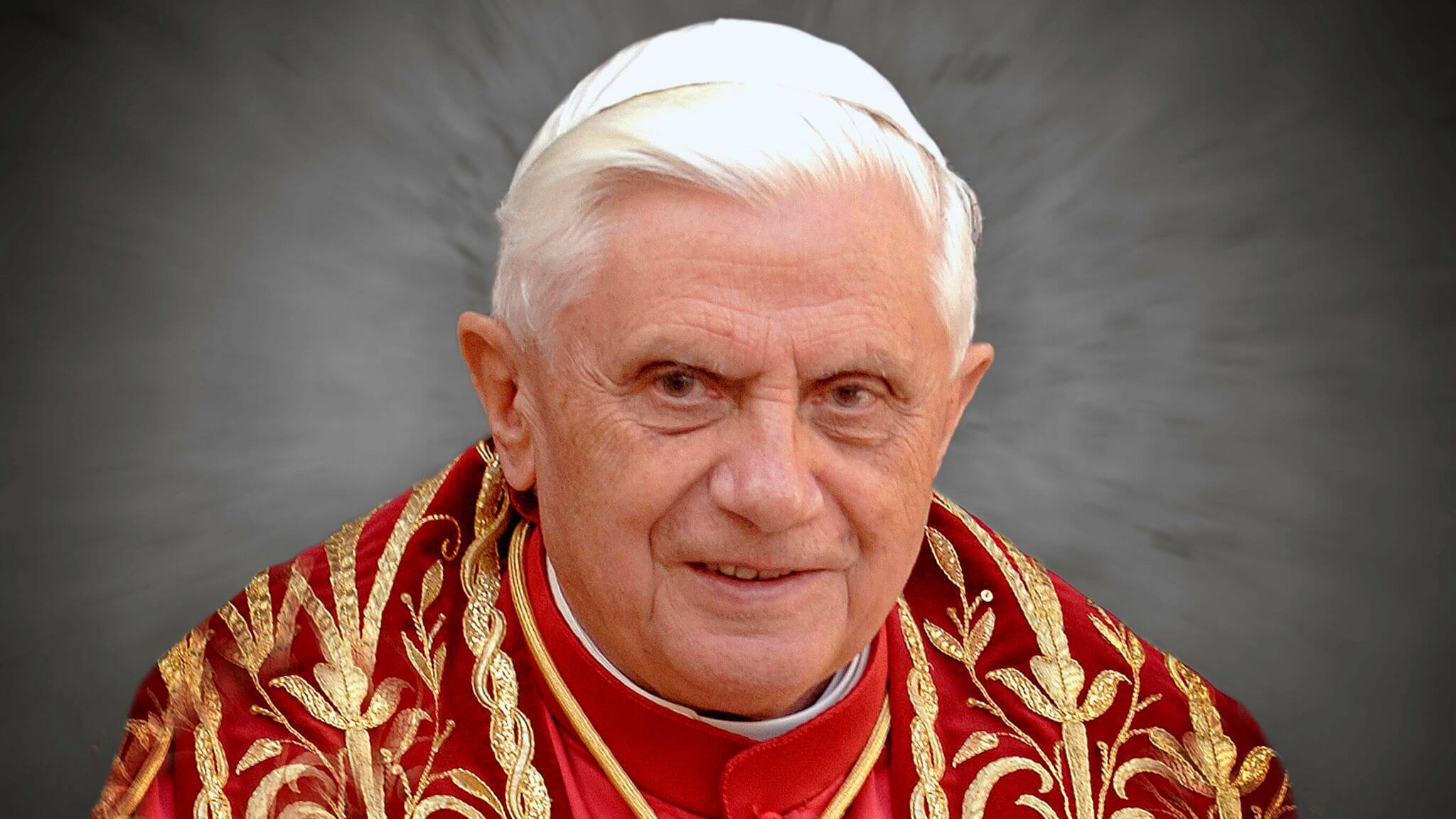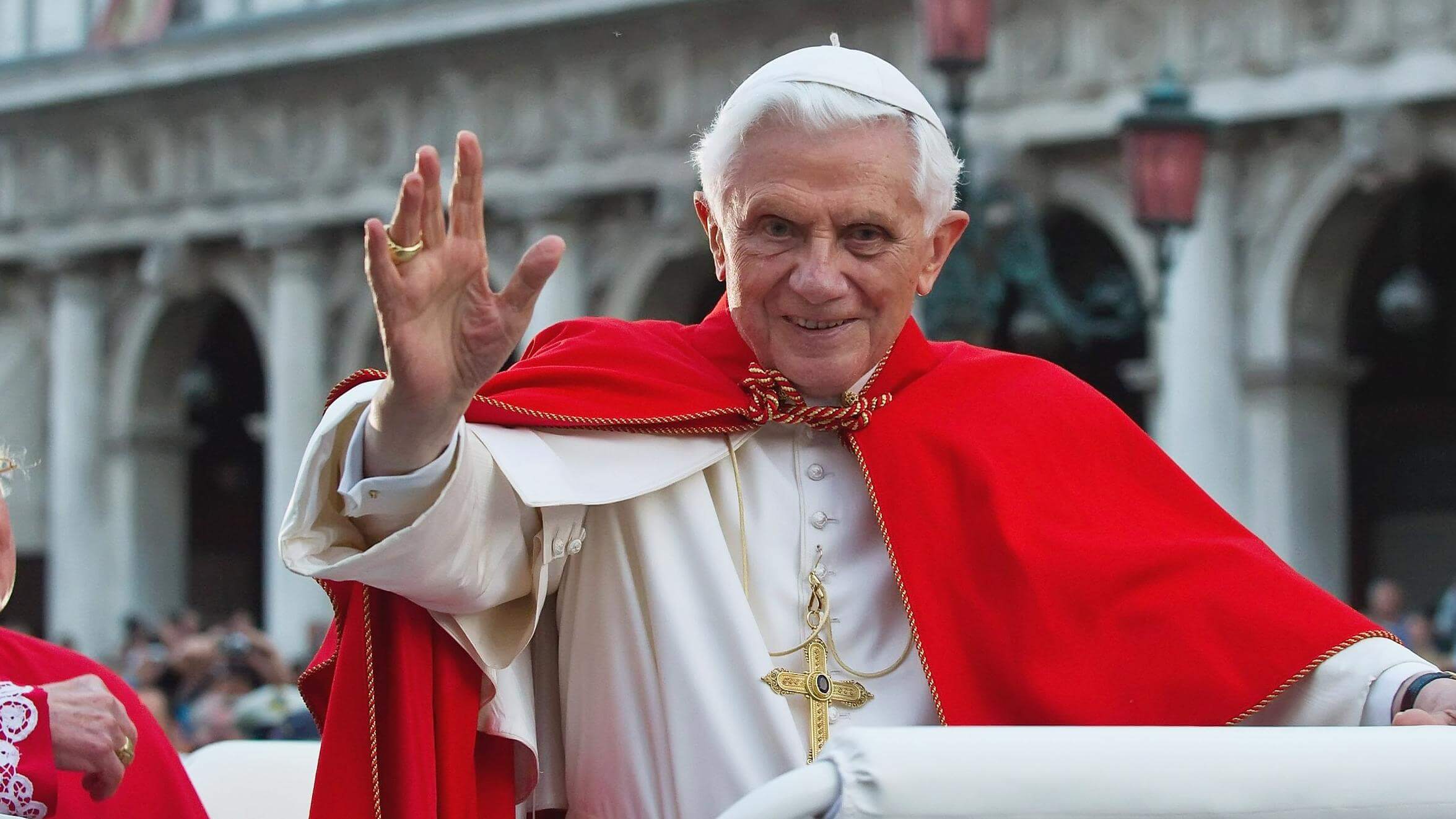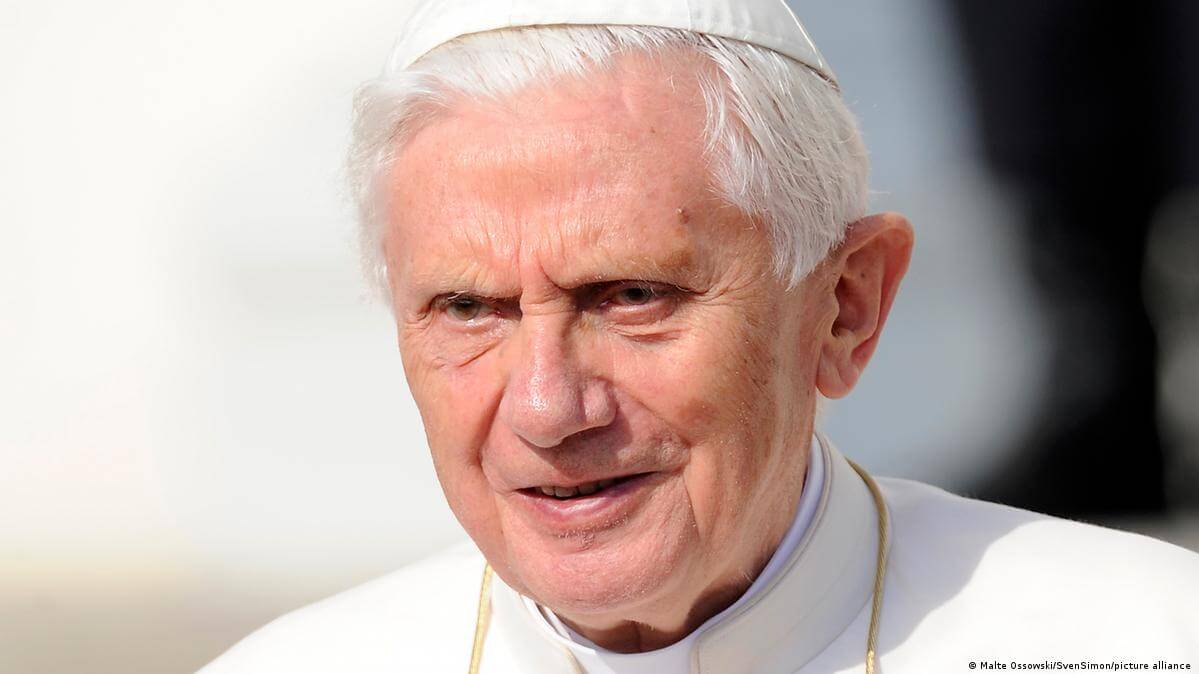About Pope Benedict XVI
VATICAN CITY (AP) — Pope Emeritus Benedict XVI, the modest German scholar who attempted to revitalize Christianity in a secularized Europe yet, will be recognized as the first pontiff in quite a while to leave the work, passed on Saturday. He was 95.
Pope Benedict dazed the world on Feb. 11, 2013, when he declared, in his regular, calm Latin, that he no longer had the solidarity to run the 1.2 billion-in-number Catholic Church that he had directed for a considerable length of time through embarrassment and lack of concern.

His sensational choice was made ready for the meeting that chose Pope Francis as his replacement. The two popes then lived one next to the other in the Vatican plants, an uncommon course of action that set up future “popes emeritus” to do likewise.
Furthermore, presently Francis will observe Pope Benedict’s burial service Mass on Thursday, the initial time in the advanced age that an ongoing pope will praise a resigned one. As recognitions poured in from political and strict pioneers all over the planet, Francis himself adulated Pope Benedict’s “benevolence” Saturday and expressed gratitude toward him for “his authentic declaration and supplication, particularly in these last long periods of resigned life.”
During Another Year’s Eve vigil, Francis said God knew of his penances presented to benefit the congregation ultimately.
The previous Cardinal Joseph Ratzinger never needed to be pope, arranging at age 78 to go through his last years writing in the “Harmony and calm” of his local Bavaria.
All things being equal, he had to follow the strides of the cherished St. John Paul II and run the congregation through the aftermath of the administrative sex misuse outrage and, afterward, a second embarrassment that ejected when his steward took his papers and gave them to a columnist.

Being chosen pope, he once said, felt like a “Guillotine” had descended on him.
By the by, he set about the gig with a determined vision to revive the confidence in a world that, he regularly regretted, generally assumed it could manage without God.
“In the tremendous region of this present reality, there is a weird neglect of God,” he told 1 million youngsters accumulated on a massive field for his most memorable unfamiliar excursion as pope to World Youth Day in Cologne, Germany, in 2005. “Maybe everything would be only similar even without him.”
He repeated that subject in his last will delivered by the Vatican on Saturday night, encouraging the loyal, particularly in his country, to “stand firm in confidence!” Two pages long and dated 2006, the will likewise address a topic dear to his heart of the reasonable discourse among confidence and reason.
Definitive, frequently disputable moves
For certain definitive, frequently disputable moves, he attempted to help Europe to remember its Christian legacy. What’s more, he set the Catholic Church on a moderate custom disapproved of the way that frequently estranged reformists. He loosened the limitations of praising the old Latin Mass and sent off a crackdown on American nuns, demanding that the congregation stay consistent with its teaching and customs despite an influencing world.
It was a way that was often switched by his replacement, Francis, whose kindness over-ethics needs distanced the conservatives who Pope Benedict had so revealed.
Pope Benedict’s style could never have been more not the same as that of John Paul or Francis. No globe-running media sweetheart or libertarian, Pope Benedict was an instructor, scholar, and profoundly educational: tranquil and thoughtful with a savage psyche. He talked in sections, not audio clips.
He had a soft spot for orange Fanta and his cherished library; when he was chosen pope, he had his whole review moved — with no guarantees — from his condo right external the Vatican walls into the Biblical Castle. The books followed him to his retirement home.
“In them are my counsels,” he said of his books in the 2010 book-length interview “Light of the World.” “I know everywhere, and everything has its set of experiences.”
Benedict’s dedication to history
Benedict’s dedication to history and custom charmed him to individuals from the conservative wing of the Catholic Church.
For their purposes, Pope Benedict stayed even in retirement, a guide of sentimentality for the universality and Latin Mass of their childhood — and the pope they very much wanted over Francis.

In time, this gathering of curve moderates, whose protests were enhanced by thoughtful U.S.- based moderate Catholic media, would turn into a critical wellspring of resistance to Francis, who answered what he said were dangers of division by reimposing the limitations on the old Latin Mass that Pope Benedict had released.
Like his ancestor, Pope Benedict made connecting with Jews a sign of his papacy. His most memorable authority as pope was a letter to Rome’s Jewish people group, and he turned into the second pope, after John Paul, to enter a temple.
Also, visit Barbara Walters died at 93 – The great anchor
In his 2011 book, “Jesus of Nazareth,” Pope Benedict made a general exemption of the Jewish nation for the demise of Christ, making sense of scripturally and religiously why there was no premise in Sacred text for the contention that the Jewish nation all in all were liable for Jesus’ passing.
“It’s obvious Pope Benedict is a genuine companion of the Jewish public,” said Rabbi David Rosen, who heads the interreligious relations office for the American Jewish Panel at the hour of Pope Benedict’s retirement.

However, Pope Benedict likewise irritated a few Jews who were frustrated at his consistent protection of and advancement toward sainthood of Pope Pius XII, The Second Great War period pope blamed by some for neglecting to revile the Holocaust adequately. Furthermore, they brutally scrutinized Pope Benedict when he eliminated the banning of a conservative English cleric who had denied the Holocaust.
Pope Benedict’s relations with the Muslim world were likewise a hodgepodge. He disturbed Muslims with a discourse in September 2006 — five years after the Sept. 11 assaults in the US — in which he cited a Byzantine sovereign who portrayed a portion of the lessons of the Prophet Muhammad as “shrewd and brutal,” especially his order to spread the confidence “by the sword.”
A resulting remark after the slaughter of Christians in Egypt drove the Al Azhar focus in Cairo, the seat of Sunni Muslim learning, to suspend attaches with the Vatican that were just reestablished under Francis.
The Vatican under Pope Benedict experienced famous PR blunders, and now and again, Pope Benedict was to be faulted. He angered the Unified Countries and a few European states in 2009 when, in transit to Africa, he let journalists know that the Guides issue couldn’t be settled by dispersing condoms.
“Running against the norm expands the issue,” Pope Benedict said.
After a year, he gave a correction, saying that assuming a male whore was to utilize a condom to avoid passing HIV to his accomplice, he may be venturing toward a more dependable sexuality.
Be that as it may, Pope Benedict’s heritage was irreversibly shaded by the worldwide ejection in 2010 of the sex misuse embarrassment. Even though, as a cardinal, he was liable for turning the Vatican around on the issue.
Reports uncovered that the Vatican knew very well of the issue yet chose to disregard it for a long time, occasionally repelling priests who attempted to make the best decision.
By Vatican News
Pope Emeritus Pope Benedict XVI has gotten back to the Dad’s Home.

The Heavenly See Press Office reported that Pope Emeritus kicked the bucket at 9:34 AM on Saturday in his home at the Mater Ecclesiae Religious community, which the 95-year-old Pope emeritus had picked as his home after leaving the Petrine service in 2013.
“With distress, I illuminate that Pope Emeritus, Pope Benedict XVI, died today at 9:34 AM in the Mater Ecclesiae Cloister in the Vatican. Additional data will be given as quickly as time permits. Starting around Monday morning, 2 January 2023, the body of the Pope Emeritus will be in Holy person Peter’s Basilica so the reliable can offer their appreciation.”
Fresh insight into deteriorating medical issues
As of now, for a few days, the medical issue of Pope Emeritus had deteriorated because of propelling age, as the Press Office had detailed in its updates of the developing circumstance.
Pope Francis shared the report about his ancestor’s deteriorating well-being toward the end of the last Broad Crowd of the year on 28 December.
The Pope had welcomed individuals to appeal to God for the Pope Emeritus, who was “extremely sick,” so the Master could comfort him and back him in this observer of affection for the Congregation until the end.
Following this greeting, supplication drives jumped up and duplicated on all landmasses, alongside an overflow of messages of fortitude and closeness from mainstream pioneers.
Burial service plans
During a preparation at the Sacred See Press office, the chief, Matteo Bruni, let columnists know that Pope Francis will direct the burial service of the Pope Emeritus on 5 January at 9.30 CET in St. Peter’s Square. No tickets are anticipated for cooperation in the Mass.
Bruni likewise said the Pope Emeritus, on Wednesday, 28th, in the early evening, got the Ceremony of Blessing of the Debilitated in the Mater Ecclesiae religious community toward the finish of Heavenly Mass.
Furthermore, addressing journalists after the preparation, Benedict explicitly asked that everything – including the memorial service – be set apart by effortlessness as he carried on with his life.
An assertion later in the day shed all the more light on insights about the lying in express, the memorial service function, and the internment.

It noticed that at the finish of the Eucharistic festival directed by the Blessed Dad, the Last Acclamation and Valediction would happen.
The Pope Emeritus’ remaining parts will then, at that point, be taken into St. Peter’s Basilica and afterward to the Vatican Caverns, where he will be let go.
Lying in state
Pope Emeritus Benedict XVI’s remaining parts will rest at the Mater Ecclesiae religious community until the morning of Monday, 2 January; official visits or public petitions to God are not anticipated.
From 9 am around the same time, Pope Benedict’s body will lie in state in St. Peter’s Basilica so the unwavering can offer their last appreciation.

